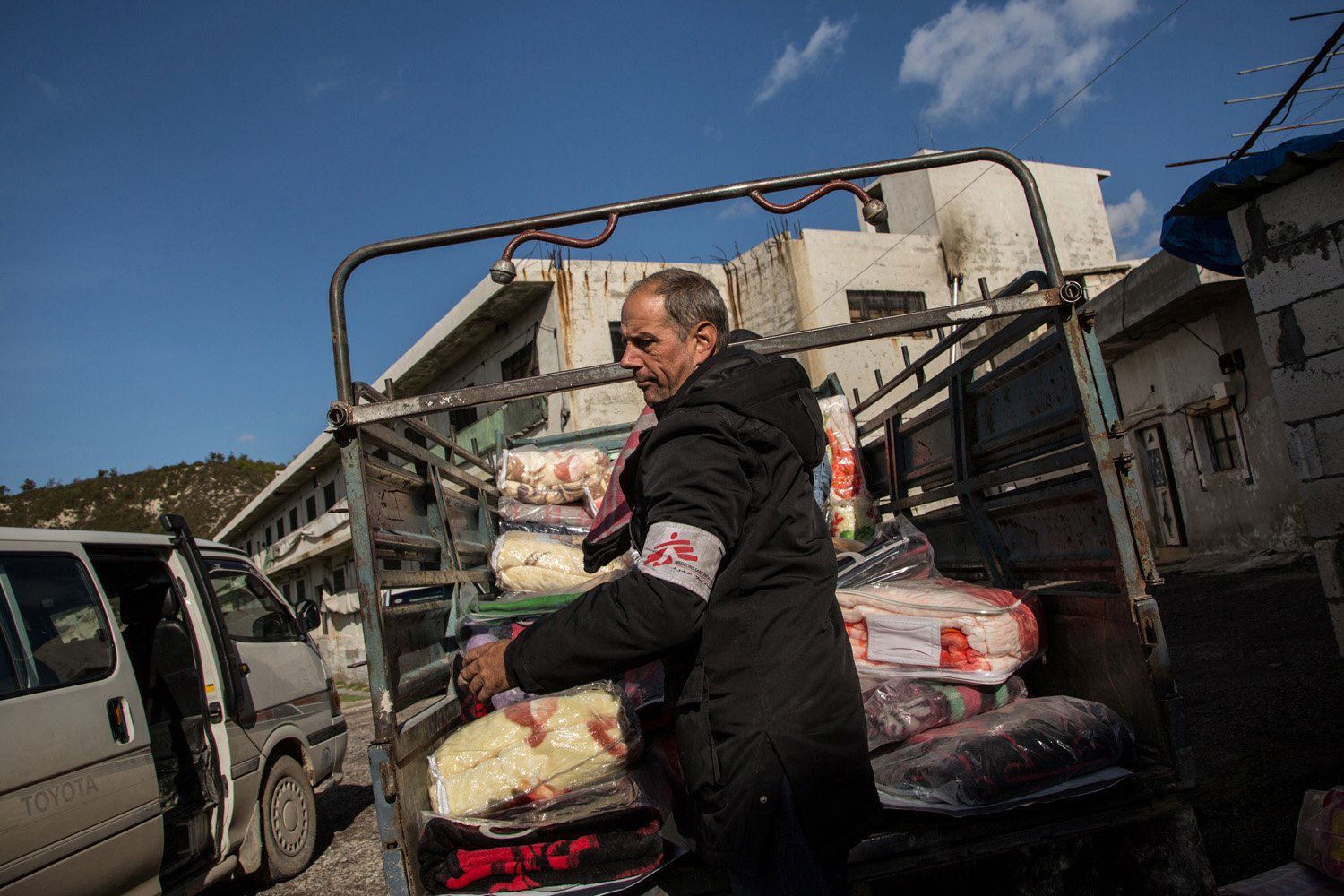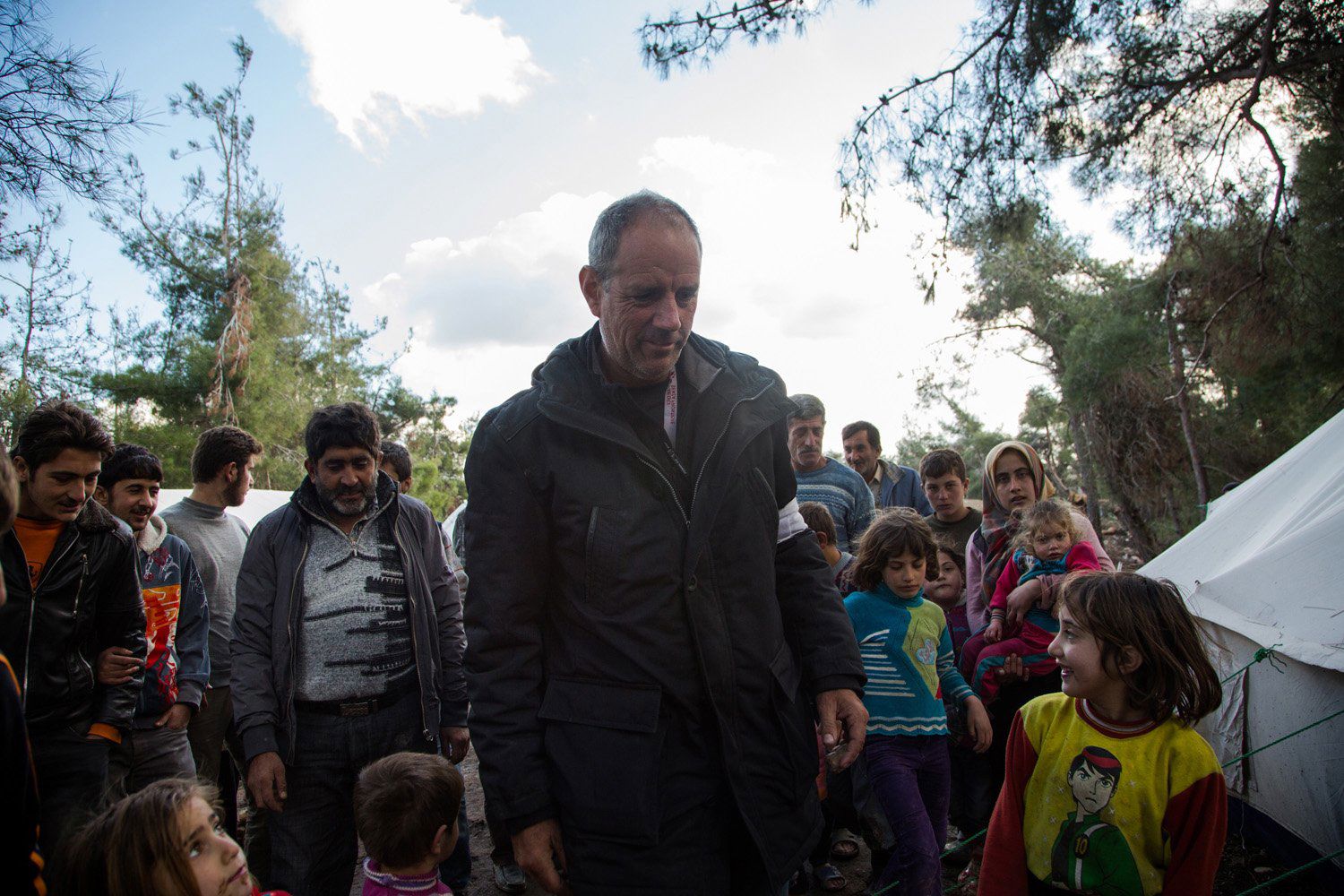Our field hospitals in Syria are ‘undercover’. Initially, we were running a hospital inside a cave then it was moved into a non functioning farm – a better location and we could adapt it to reduce the risk of shrapnel or mortar fire. When I got there, the field hospital was already operational, although in a rough way - there are always things that needed improvement and the constant threat that the entire hospital could be moved to another location on short notice. The look of the hospital inside is quite normal although it was obvious it had to be made operational quickly. The same, old inflatable operating theatre from the cave is used for sanitary and privacy issues. It also has emergency rooms, inpatient and outpatient departments, a very busy maternity which we expanded, and even mental health component.
From my first arrival, helicopter drumming and shelling were fairly continuous in the “free” area in which we were working. That being said the hospital was never targeted but you could hear the explosions at any time of the day or night; some nights and days being far worse than others. MSF was very adamant about every field worker that was coming to the project that they completely understood the situation we were getting into. It is an assignment in a war context in its purest form. We had war wounded come in fairly regularly and some big mass casualties just before I arrived. That was our main focus to be prepared for as they are the most important challenges we would face.
I went in as a LAF (Log/Admin/Fin). I found the administrative part of the job to be cumbersome to the rest of my job. There were major changes in human resources (HR) that needed to be done that required a lot of attention. The decision was made to bring in HR expert to get it all off my plate so I could concentrate on pure logistics. This was a relief for me that I truly appreciated the wisdom of. As before the war Syria was a developed nation, a lot of our national staff was educated to a fair degree. I was fortunate enough to have the help of some excellent national staff in my department towards the end of my mission. These are the people that will rebuild Syria and I wish them all the best.
The actual compound of the hospital is not very big so it was easy to get around. We also had two rental houses in the valley below, an outpatient department, three mobile clinics and a first aid post that all needed attention also. My duties entailed all aspects of regular MSF logistics but I was told to focus on communication as a priority when I arrived. Communication was very tricky at the time of my arrival and too much time was spent in the pursuit of it. I believe this was well addressed while I was there.
Supply, surprisingly enough, worked out pretty well relatively speaking. We can get some things, very simple things in the community – nails, cement, gravel, drums, and basic food items. The majority of medicines and other medical supplies are brought in legitimately through legal border crossings; other more normal items, are regularly moved across the border at a variety of crossing using a variety of means. All these require lots of good contacts and networks to ensure that we get the medicines and supplies quickly for the medical team to do their jobs. All of these movements including the crossing of staff were one of the most amazing I have seen in my life. Movements and crossings change by the day and sometimes to the minute. I was amazed at how our staff pulled off these situations on a regular basis! Movements being probably the hardest thing to learn in the mission, but the staff did a phenomenal job and I never saw but one or two small mistakes in this area.
John BUNNELL, lives in Indonesia, went to war-ravaged Syria as logistician for 2.5 months in an undercover field hospital of Médecins Sans Frontières (MSF).



